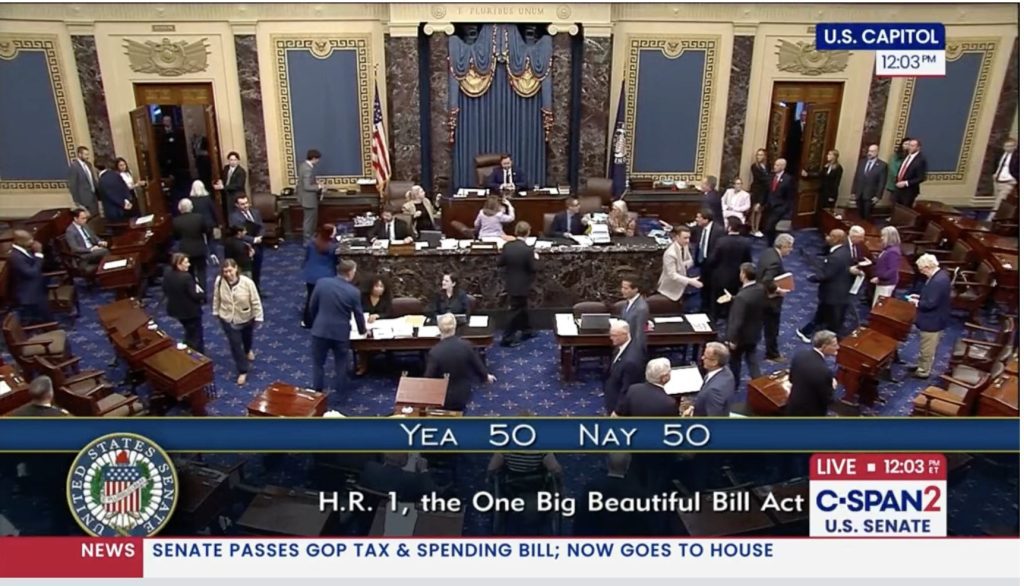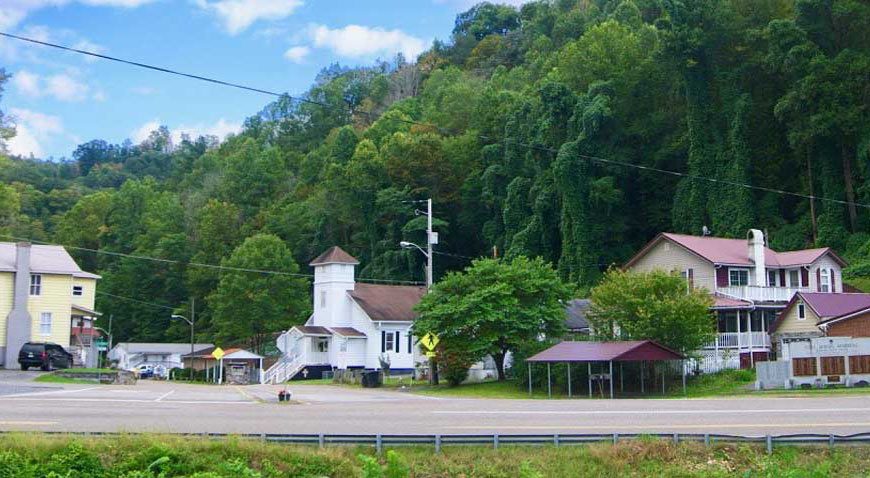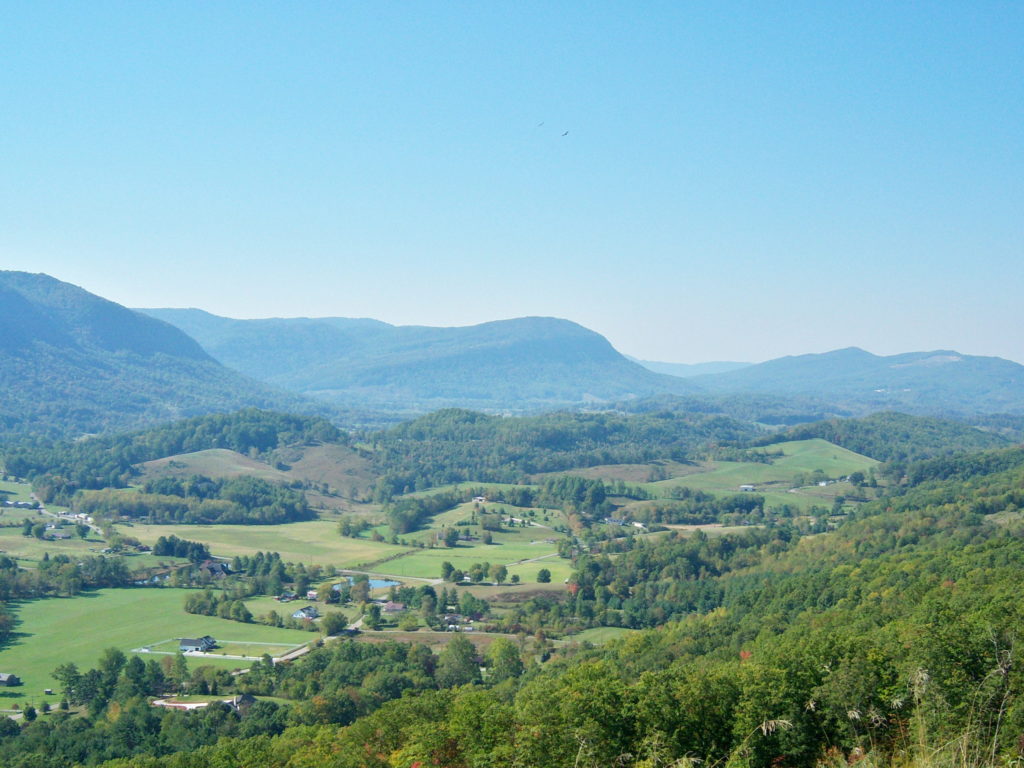Advocates release policy platform to give Congress a plan to stop zombie mines
FOR IMMEDIATE RELEASE
February 15, 2024
CONTACT
Trey Pollard – trey@pollardcommunications.com
VIEW THE PLATFORM
Watch the Roll-Out Event
COAL COUNTRY — Today, advocates from across coal-mining communities released a new federal policy platform that serves as a road map to address and prevent unreclaimed “zombie mines” — idled modern-era mines that have not been cleaned up by the responsible coal companies. The platform has already been endorsed by 52 community and national organizations. It includes an array of new recommended solutions to thwart the continued zombie mine crisis.
“The zombie mine crisis is ravaging coal country right now because coal CEOs have been allowed to exploit loopholes in the law, lax state oversight and inconsistent standards to boost their profits and dump the costs all on our communities,” said Erin Savage, Senior Program Manager for Appalachian Voices. “This platform offers the solutions to tackle this crisis once and for all by updating the law, closing loopholes and finally holding coal CEOs accountable to clean up their own messes.”
While the Bipartisan Infrastructure Law of 2021 deploys $11 billion to clean up abandoned coal mines from before the 1977 enactment of the Surface Mining Control and Reclamation Act, a crisis has developed with mines built post-1977 — or “modern coal mines.” SMCRA was supposed to ensure that no mines permitted after 1977 would be abandoned without funds available to clean up and reclaim them, but the provisions put into place have not fulfilled that promise. Regulators have set the amount of money for required reclamation bonds too low, and they are not enforcing the requirement that coal companies reclaim land contemporaneously with coal removal. “Zombie” mines, mines which have not produced coal nor demonstrated reclamation for months or years, represent an unknown percentage of the total of disturbed coal mine lands nationally. Specifically, numerous problems and loopholes exist that lead to zombie mines, including:
- SMCRA requires coal companies to post bonds that would give government agencies the funds to reclaim mines as needed but, in practice, many state bonding programs are insufficient and bond amounts are set too low;
- Some states utilize pool bonds, where coal companies pay only a fraction of reclamation costs into a shared pool;
- Some companies still use self-bonds which require merely a promise from a coal company to pay for clean up, rather than money;
- Often, companies strategically transfer mining permits to spin-off companies that declare bankruptcy to shed reclamation liabilities;
- Some companies have kept long-idled mines under an active designation even while they are not being mined, avoiding reclamation responsibilities indefinitely.
A recent analysis of Kentucky permits found that nearly 40% of “active” mines haven’t produced coal since 2020. In today’s economic climate, any active mine is at risk of going into zombie mine status. In part as a result of these loopholes and regulatory inconsistencies or gaps, there are nearly 1 million acres of modern coal mines in 12 states that have not yet been reclaimed, according to analyses by the Western Organization of Resource Councils and Appalachian Voices. Some of these mines have idled for years without producing coal or making progress on reclamation. They often leave the surrounding area vulnerable to leaks and other environmental hazards. The problem is anticipated only to grow amid the ongoing decline of the coal industry — and the risks are often more serious than with pre-1977 mines as newer abandoned mines are often larger, closer to communities and result in more environmental damage than older mines because of the introduction of mountaintop removal mining in the 1970s and other factors. The crisis is so pressing that the Government Accountability Office recently confirmed it was investigating the scope and breadth of the problem after pressure from advocates and eight members of Congress.
The platform released today prescribes numerous effective solutions devised and endorsed by coal community residents, advocates and leaders. The full slate of recommendations is available in the platform, but highlights include proposals to:
- Eliminate self-bonding so that money and not promises are required to be put into place for reclamation;
- Require more timely reclamation by setting clear and enforceable deadlines for reclamation milestones so that idled or shuttered mines are cleaned up promptly;
- Prohibit regulators from allowing mines to be idled indefinitely and establish a public input process and new requirements from operators to ensure the reclamation resources are up-to-date and available for clean-up when temporary cessation requests are made;
- Establishing a new system of financial assurances for reclamation so that adequate resources are always available for clean-up. Recommended options include a trust fund tied to specific permits or a federal reclamation fund financed by a levy on coal operators;
- Amend SMCRA and existing Treasury Department rules to ensure bonds are from certified bond companies and cover the full aggregate risk created by mines;
- Phase out state bond pools;
- Improve bonding and reclamation requirements for long-term water treatment as well as ensuring full compliance with water monitoring requirements during clean-up.
“Our communities have faced landslides, toxic water and harmful water runoff issues for years because mine operators have been allowed to avoid their clean-up duties,” said Rebecca Shelton, Director of Policy for Appalachian Citizens’ Law Center. “Congress must act swiftly to enact these policy solutions before it’s too late.”
The coalition’s website will be updated to include news about legislative progress on the platform’s recommended solutions.
“The economic futures of Illinois coal communities and communities across the nation are dependent on the sufficient clean-up of abandoned and modern mine lands, including the addressment of water pollution,” said Jizelle Torres, Climate and Energy Program Assistant for Prairie Rivers Network in Illinois. “We are excited to support SMCRA policy reforms that will ensure adequate reclamation of modern-era coal mines to protect communities and our environment.”
Endorsing groups include:
Appalachian Voices
Alliance for Appalachia
Amphibian and Reptile Conservancy
Appalachian Mountain Advocates
Appalshop CMI
Black Warrior Riverkeeper
Center for Biological Diversity
Center for Coalfield Justice
Center for Rural Strategies
Central Illinois Healthy Community Alliance
Christians For The Mountains
Citizens Against Longwall Mining
Citizens Coal Council
Coal River Mountain Watch
CoolHouse Inc.
Earth Action, Inc.
Earth Ethics, Inc.
Earthjustice
Faith in Place
Fox Valley Citizens for Peace &
Justice
Friends For Environmental Justice
Friends of Bell Smith Springs
Friends of the Cheat
Greater Highland Area Concerned Citizens
Green West Strategies
Gwendolyn Ridge, LLC
Headwaters, Inc.
Jewish Climate Action Network
Jewish Earth Alliance PA
Kentucky Resources Council, Inc.
Metro East Green Alliance
Mountain Association
Mountain Watershed Association
National Wildlife Federation
Northern Plains Resource Council
Ohio Environmental Council
Powder River Basin Resource Council
Prairie Rivers Network
ReImagine Appalachia
Rise Up WV
Sierra Club
Southern Appalachian Mountain Stewards
Statewide Organizing for Community eMpowerment (SOCM)
Sweet Springs Resort Park, Sweet Springs Watershed Assoc.
The Sludge Hub & Company
West Virginia Environmental Council
West Virginia Highlands Conservancy
WV Rivers Coalition
Western Organization of Resource Council
# # #



